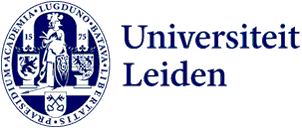
Research Traineeship Programme completed: 'Here you are encouraged to try things'
Discovering while still studying whether work in science might be for you. That is what students get during the faculty Research Traineeship Programme. On Friday 1 September, they presented their results to each other and their supervisors.
During the traineeship, students get the chance to contribute to their supervisors' research. Thorsten Hopman created a database of images on hygiene practices in Asia. 'Previous research on health in the colonies has mainly looked at things like vaccination campaigns and infrastructure building,' he explains. 'Very little attention has been paid to educating the population, even though that was very important. An Indonesian farmer may not have had much to do with those big campaigns, but he did have doctors coming by to tell him what was important to prevent diseases.'
To fill that gap, Thorsten spent an average of 10 hours a week working on a database of images featuring this information campaign. 'I categorised the material from two existing exhibitions and added some new images myself. At first, I found it quite overwhelming to work with so many primary sources that no one had seen yet, but I’ve become very handy at it.'
Intensive and informal collaboration
Thorsten believes this is partly because of the contact he had with his tutor. 'The contact with lecturers is much more informal than during lectures. Here, you are really encouraged to do things yourself and try things out. That makes it much easier to approach someone and say, ‘I found this. Might it be interesting?’
Participant Janis Oomen is also enthusiastic about the supervision. ‘When do you ever get the chance to work so intensively with your tutors?’ she says. 'Maybe during your thesis, but that's also only one time during your studies. I really enjoyed getting another chance like that.'
Interdisciplinary challenge
Together with Thirza Vis, Janis worked on a study of Greek epitaphs from Rome. 'She mainly looked at Greek identity and, for example, the mythological references that can be found in those writings, while I was more concerned with the question of who the people were for whom those inscriptions were written. Were they slaves or freeborn? Men? Women? Can we now say anything about their legal status?'
To find answers to those questions, Janis and Thirza used an interdisciplinary approach. 'It was good that Thirza is trained as a classicist and I as a historian. I am used to collecting a lot of data and then occasionally picking out an example from it, while Thirza did more close reading. So I had to let go of my love of numbers and statistical analysis a bit, but it did teach me to look at things in a different way.'
Future plans
Meanwhile, Thorsten and Janis have both graduated. Has the traineeship convinced them to pursue a career in science? 'I am now going to Japan for a year first,' says Thorsten. ‘The idea is mainly to travel and have fun, but I'll keep looking around to see if I see things that are relevant to this project. Maybe then I can develop it further.' For Janis, those plans are already more concrete. She has just started as a PhD student at the University of Groningen to do further research on epitaphs. 'I'm only in my first few weeks, so I'm mostly just getting started, but I already notice that it has helped me that in the Research Traineeship I was introduced to Greek epitaphs. That's a nice extension to Latin, which I was mainly concerned with before.'
This year's Research Traineeship Programme consisted of the following trainees: Paulina Bastián Alvarado, Fenna Berger, Berend Buiten, Madelon Harmsen, Jurriaan Hoenderdos, Thorsten Hopman, Philipp Huber, Amina el-Kabary, Duncan Kampschuur, Ekaterina Karaseva, Paulien Koster, Jeroen van de Linde, Dies van der Marel, Rush Massey, Giacomo Mastrogregori, María del Mar Forero Mesa, Clara Mendes Pereira, Bob Mutsaerts, Janis Oomen, Jessie van Straaten, Thirza Vis, Chih Chieh Wang.
They were supervised by: Cátia Antunes, Jelena Belic, Jenny Doetjes, Pablo Isla Monsalve, Anne Heyer, Maartje Janse, Casper de Jonge, Gerhard de Kok, Ethan Mark, Maurits Meerwijk, Tim Meijers, Johannes Müller, Leticia Pablos-Robles, Christoph Pieper, Noelle Richardson, Diederik Smit, Rens Tacoma, Soledad Valdivia Rivera, Wim Voermans, Peter Webb, Matthijs Westera, Margaretha Wewerinke-Sing, Jurriaan Witteman
An overview of all projects can be found here. Applications for the new traineeship will open later this year.





